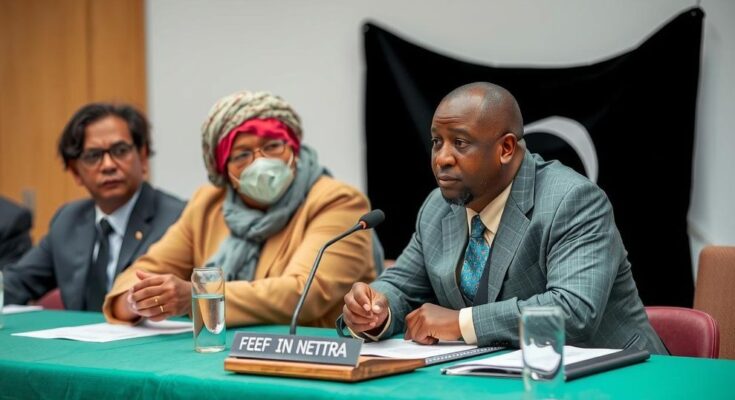The UN has proposed a plan to stabilize Libya, unify its government, and organize elections. This initiative, presented by UN envoy Stephanie Koury, aims to resolve the ongoing political deadlock and rekindle national legitimacy. As local elections have shown potential, the focus now lies on addressing the overarching political challenges that hinder nationwide democratic processes.
The United Nations has introduced a comprehensive plan aimed at stabilizing Libya and facilitating the organization of elections, as communicated by Stephanie Koury, the UN envoy to Libya, during a Security Council meeting. Libya continues to grapple with the aftermath of a protracted conflict that stemmed from the 2011 NATO-supported rebellion, which led to the ousting of its longstanding leader, Moamer Kadhafi. The nation of 6.8 million faces a fragmented political landscape, characterized by a UN-recognized government in Tripoli and a rival administration in the east, supported by military figure Khalifa Haftar.
Koury emphasized that the UN Support Mission in Libya (UNSMIL) is set to create an advisory committee tasked with addressing electoral issues to facilitate general elections. However, no specific timeline for these elections has been established, leaving the prospect of democratic governance uncertain. Libya’s ambassador to the UN, Taher al-Sonni, expressed dissatisfaction with the lack of a clear strategy, asserting that existing political stalemates hinder progress. He noted the discrepancy between local electoral success and the ongoing challenges to conducting nationwide elections.
Despite ongoing political turmoil, Koury expressed optimism about Libya’s potential, stating that it could emerge as a beacon of stability and prosperity in the Mediterranean region, provided it navigates its current challenges effectively. Plans include fostering dialogues to create a unified national vision for Libya’s future, a critical step towards overcoming systemic obstacles in the path to reinstating governmental legitimacy and building trust among Libyan citizens.
Libya has experienced significant turmoil since the fall of Moamer Kadhafi in 2011, with competing governments emerging from the chaos. The UN has been actively involved in efforts to restore stability and promote democracy through a series of negotiations and agreements. Despite local elections showing promise, political disagreements have stymied progress toward national elections. The international community has been alerted to Libya’s situation, recognizing the broader implications of its instability for the region.
In conclusion, the UN’s plan for Libya represents a critical move towards overcoming the entrenched political impasses that have plagued the nation since 2011. By establishing an advisory committee for the electoral process and fostering dialogue towards a unified national vision, the UN aims to pave the way for future elections. However, the persistent lack of clarity regarding the timeline for these elections remains a significant concern, underscoring the complexity of Libya’s political landscape.
Original Source: www.al-monitor.com




